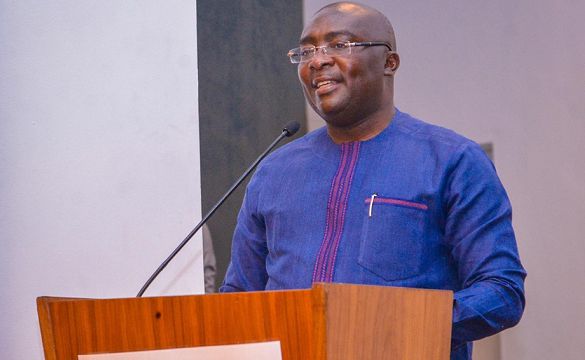
We’ve embarked on power extension programme -Dr Bawumia
Vice-President Mahamudu Bawumia has said Ghana has embarked on an ambitious power grid expansion programme to allow for further exportation of electricity to West African countries, including those in the Sahelian region such as Niger and Mali.
He said apart from the exportation of power to Togo and Benin, Ghana had also started the exportation of affordable and reliable electricity to Burkina Faso, all geared towards improving the social and economic conditions of the people within the bloc.
Dr Bawumia was speaking at an ECOWAS sustainable energy forum and exhibition in Accra yesterday.
It was organised by the ECOWAS Centre for Renewable Energy and Energy Efficiency (ECREEE) for member countries, experts, development partners and other stakeholders on the theme: “Achieving sustainable energy targets in ECOWAS”.
The Vice-President gave an assurance that Ghana would continue to work towards ensuring a sustainable power sector to support its citizens and ECOWAS member countries.
Projects
He mentioned the Volta River Authority’s 2.5 megawatt (MW) grid-connected solar PV system in Navrongo, a 330kV Coastal Backbone Transmission line from Takoradi to Tema under the West African Power Pool (WAPP) and the completion of work on the Tema-Tornu on the Ghana-Togo border power component.
Others include the Aboadze-Prestea, Prestea-Kumasi, Kumasi-Bolgatanga and Kpando-Kadjebi transmission line projects which are all at various stages of completion.
Commitment
Dr Bawumia said the government was fully committed to its goal of developing and ensuring a reliable high-quality energy service at a minimum cost to all sectors of the economy, and that it was being carried out through the careful formulation, implementation, monitoring and evaluation of energy sector policies.
He said the objective of the energy sector programme was to make energy services universally accessible and readily available in an environmentally friendly manner and mentioned the Renewable Energy Act, 2011 (Act 832), which he said would facilitate investment in the renewable energy sector.
He said the government would also improve the power generation mix to ensure a reliable power system with the completion of a number of priority energy projects, including the Tsatsadu Mini-hydro power at Alavanyo-Abehenease in the Volta Region.
Targets
According to the Vice-President, ECOWAS policies on renewable energy and energy efficiency, which were adopted in 2013, tasked the region to achieve ambitious targets by 2020 and 2030.
He said the ECOWAS region, with less than half of its citizens having access to modern energy services, was consistently deprived of the full benefits of electricity, and that if those challenges were not curbed, it would be impossible to achieve the Sustainable Development Goals (SDGs) by 2030.
That, he explained, required the provision of affordable and environment-friendly sustainable energy supply for all.
He said although ECOWAS was doing a lot to better the standard of living of its people, poverty and other social and economic indicators continued to paint a gloomy picture about the region.
“We have the responsibility to lift our people out of poverty by providing them with the right infrastructure and systems needed for their development,” Dr Bawumia said.
Climate change
A Deputy Minister of Energy, Mr William Owuraku Adu, said global warming and climate change were a reality and, therefore, urged member countries to work towards mitigating their impact on their countries.
He said it was for that reason that Ghana increased its use of renewable energy and also enacted a Renewable Energy Act as a good global citizen which respected the Paris Agreement on Climate Change.
